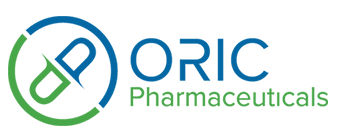预约演示
更新于:2025-05-07
HER2 exon 20
更新于:2025-05-07
基本信息
别名- |
简介- |
关联
34
项与 HER2 exon 20 相关的药物靶点- |
作用机制 EGFR exon 20抑制剂 [+1] |
在研机构 |
原研机构 |
最高研发阶段批准上市 |
首次获批国家/地区 中国 |
首次获批日期2023-08-22 |
靶点- |
作用机制 EGFR exon 20抑制剂 [+1] |
最高研发阶段批准上市 |
首次获批国家/地区 美国 |
首次获批日期2021-09-15 |
97
项与 HER2 exon 20 相关的临床试验ChiCTR2500098640
Study on the correlation between intestinal microbiota differential metabolites and the efficacy and gastrointestinal reactions of third-generation EGFR-TKI
开始日期2025-03-18 |
申办/合作机构- |
NCT06816992
Phase 1b Study of ORIC-114 in Combination with Amivantamab in Patients with EGFR Exon20 Insertion Mutant NSCLC
The purpose of this study is to establish the recommended phase 2 dose (RP2D), safety, pharmacokinetics (PK), pharmacodynamics (PD), and preliminary antitumor activity of ORIC-114 in combination with subcutaneous (SC) amivantamab in patients with advanced or metastatic NSCLC harboring an EGFR exon 20 insertion mutation.
开始日期2025-02-27 |
申办/合作机构 |
NCT06864624
Sunvozertinib As Neoadjuvant and Adjuvant Therapy in Stage II-IIIB Non-small-cell Lung Cancer Patients with EGFR Exon 20 Insertion Mutation: a Single-arm, Phase 2 Study (WU-KONG20)
This is a single-arm, phase 2 study to investigate the efficacy and safety of sunvozertinib as neoadjuvant and adjuvant treatment for stage II-IIIB non-small-cell lung cancer patients with EGFR exon20 insertion mutation.
开始日期2025-02-18 |
申办/合作机构 Tangdu Hospital [+1] |
100 项与 HER2 exon 20 相关的临床结果
登录后查看更多信息
100 项与 HER2 exon 20 相关的转化医学
登录后查看更多信息
0 项与 HER2 exon 20 相关的专利(医药)
登录后查看更多信息
26
项与 HER2 exon 20 相关的文献(医药)2025-02-01·European Journal of Cancer
Enhanced detection of actionable mutations in NSCLC through pleural effusion cell-free DNA sequencing: A prospective study
Article
作者: Shih, Jin-Yuan ; Lin, Yen-Ting ; Ho, Chao-Chi ; Hsu, Chia-Lin ; Yang, James Chih-Hsin ; Wang, Hsin-Yi ; Yang, Ching-Yao ; Liao, Wei-Yu ; Wu, Shang-Gin
2024-09-01·Anti-Cancer Drugs
First case report of sunvozertinib for the treatment of HER2 exon 20 insertion in lung adenocarcinoma
Article
作者: Hao, Jianqing ; Luan, Tao ; Yang, Gang ; Wang, Shuaiying ; Xie, Xiaohong ; Zhou, Chengzhi ; Lin, Xinqing
2024-06-01·Modern Pathology
Clinicopathologic and Molecular Characteristics of HER2 (ERBB2)-Altered Non–Small Cell Lung Cancer: Implications for Precision Medicine
Article
作者: Han, Joungho ; Choi, Yoon-La ; Lee, Yurimi ; Kang, Dong-Wook ; Lee, Boram
31
项与 HER2 exon 20 相关的新闻(医药)2025-02-19
Zongertinib would be the first orally administered, targeted therapy for previously treated patients with HER2 (ERBB2)-mutant advanced non-small cell lung cancer (NSCLC), if approved
The application for this investigational treatment is based on positive results from the Phase Ib Beamion LUNG-1, Cohort 1 trial that demonstrated an objective response rate of 71% in 75 previously treated patients with advanced NSCLC
HER2 (ERBB2)-mutant advanced NSCLC is linked to poor prognosis and currently has limited treatment optionsi
RIDGEFIELD, Conn. and INGELHEIM, Germany, Feb. 19, 2025 /PRNewswire/ -- Boehringer Ingelheim today announced that the U.S. Food and Drug Administration (FDA) has granted Priority Review to its new drug application for zongertinib (BI 1810631) for the treatment of adult patients with unresectable or metastatic non-small cell lung cancer (NSCLC) whose tumors have HER2 (ERBB2) mutations and who have received prior systemic therapy. The FDA grants Priority Review to applications for drugs that would offer significant improvements in the treatment, diagnosis, or prevention of serious conditions, with action expected within six months compared to 10 months under standard review. The Prescription Drug User Fee Act (PDUFA) action date is in the third quarter of 2025.
"We believe zongertinib has the potential to transform the care of previously treated patients with HER2 (ERBB2)-mutant advanced non-small cell lung cancer and are hopeful about the continued research in other tumor types and lines of therapy," said Shashank Deshpande, Member of the Board of Managing Directors and Head of Human Pharma at Boehringer Ingelheim. "Priority Review illustrates the urgent need in this patient population and the possibility for zongertinib to be a groundbreaking innovation for patients with limited treatment options."
The application was based on results from the positive Phase Ib Beamion LUNG-1 trial. Data from Cohort 1 (N=75) of the study demonstrated an objective response rate (ORR) of 71% with six-month progression-free survival (PFS) and duration of response (DoR) rates of 69% and 73%, respectively, in patients with mutations in the HER2 tyrosine kinase domain.
Zongertinib had a safety profile with a low incidence of dose reductions (5%) and treatment discontinuations (3%). The majority of treatment-related adverse events (TRAEs) with zongertinib were mild in nature with diarrhea and rash being the most common all grade TRAEs, at 51% and 27% respectively. No new safety signals were observed. Grade 3 or higher TRAEs occurred in one patient treated with zongertinib. No treatment-related interstitial lung disease (ILD) cases were reported.
"Personalized medicine has revolutionized cancer treatment," said GO2 for Lung Cancer's Chief Scientific Officer, Courtney Granville. "Early screening and biomarker testing for mutations provide critical information to guide targeted therapies in personalized medicine. This filing acceptance represents a significant step toward offering another option for individuals with a HER2 (ERBB2) diagnosis, bringing hope and direction to cancer patients."
Zongertinib was previously granted Breakthrough Therapy Designation and Fast Track Designation by the FDA. The FDA's Breakthrough Therapy designation is intended to expedite the development and review of a medicine that is intended to treat a serious or life-threatening disease, and preliminary clinical evidence indicates the drug may demonstrate substantial improvement over available treatments. The FDA's Fast Track program is designed to facilitate the development and expedite the review of drugs to treat serious conditions and fill an unmet medical need. In addition to the FDA designations, Japan's Pharmaceuticals and Medical Devices Agency recently granted Orphan Drug Designation to zongertinib.
About the Beamion clinical trial program
Beamion LUNG-1 (NCT04886804) is an open-label, Phase I dose escalation trial, with dose confirmation and expansion, of zongertinib as monotherapy in people with unresectable or metastatic solid tumors with HER2 (ERBB2) alterations. Beamion LUNG-2 is a Phase III, open label, randomized, active-controlled study that is enrolling patients with unresectable or metastatic non-squamous non-small cell lung cancer (NSCLC) harboring HER2 (ERBB2) tyrosine kinase domain mutations to evaluate zongertinib compared with standard of care.
About zongertinib
Zongertinib (also known as BI 1810631) is an investigational, irreversible tyrosine kinase inhibitor (TKI) that selectively inhibits HER2 (ERBB2) while sparing EGFR, thereby limiting associated toxicities. This orally administered, targeted treatment is being developed for HER2 (ERRB2)-mutant advanced non-small cell lung cancer (NSCLC) and additional clinical studies with zongertinib are ongoing in solid tumors with HER2 alterations.
About non-small cell lung cancer (NSCLC)
Lung cancer claims more lives than any other cancer type and the incidence is set to increase to over 3 million cases worldwide by 2040.ii NSCLC is the most common type of lung cancer.iii Due to a lack of symptoms and misdiagnoses,iv most patients diagnosed with NSCLC present at stage III or IV, where the disease has metastasized locally or to other organs.v Fewer than 3 in 10 patients are alive five years after a diagnosis of HER2 (ERBB2)-mutant advanced NSCLC.vi People living with advanced NSCLC can experience a detrimental physical, psychological, and emotional impact on their daily lives. There remains a high unmet need for additional treatment options for people living with advanced NSCLC. HER2 (ERBB2) mutations occur in approximately 2–4% of NSCLC cases and are associated with a poor prognosis and higher incidence of brain metastases.vii,viii Mutations in HER2 (ERBB2) can lead to overexpression and overactivation, which can in turn result in uncontrolled cell production, inhibition of cell death and promotion of tumor growth and spread.ix
About Boehringer Ingelheim in Oncology
We have a clear aspiration – to transform the lives of people with cancer by delivering meaningful advances, with the ultimate goal of curing a range of cancers. Boehringer Ingelheim's generational commitment to driving scientific innovation is reflected by the company's robust pipeline of cancer cell-directed and immuno-oncology investigational therapies, as well as the smart combination of these approaches. Boehringer's ambition in oncology is to take a diligent and broad approach, creating a collaborative research network to tap into a diversity of minds, which is vital in addressing some of the most challenging, but potentially most impactful, areas of cancer research. Simply put, for Boehringer Ingelheim, cancer care is personal, today and for generations.
About Boehringer Ingelheim
Boehringer Ingelheim is a biopharmaceutical company active in both human and animal health. As one of the industry's top investors in Research and Development, the company focuses on developing innovative therapies in areas of high unmet medical need. Independent since its foundation in 1885, Boehringer takes a long-term perspective, embedding sustainability along the entire value chain. More than 53,500 employees serve over 130 markets to build a healthier, more sustainable, and equitable tomorrow. Learn more at .
MPR-US-103453
i Nützinger J, Lee JB, Low JL, et al. Lung Cancer. 2023;186:107385. doi:10.1016/j.lungcan.2023.107385
ii International Agency for Research on Cancer – World Health Organization. Rates of trachea, bronchus and lung cancer. Available at: (Accessed: January 2025).
iii Zappa C & Mousa Non-small cell lung cancer: current treatment and future advances, Transl Lung Cancer Res. 2016 Jun; 5(3): 288–300.
iv American Cancer Society. Signs and Symptoms of Lung Cancer Available at: (Accessed: January 2025).
v Casal-Mouriño, A. et al. Epidemiology of stage III lung cancer: frequency, diagnostic characteristics, and survival. Transl Lung Cancer Res. 2021;10(1):506-518.
vi National Cancer Institute Surveillance, Epidemiology, and End Results (SEER). (Accessed: January 2025).
vii Baraibar I, et al. Novel drugs targeting EGFR and HER2 exon 20 mutations in metastatic NSCLC. Crit Rev Oncol Hematol. 2020;148:102906.
viii Li, B.T. et al. Trastuzumab Deruxtecan in HER2-Mutant Non–Small-Cell Lung Cancer. N Engl J Med. 2022;386:241–51.
ix Galogre M, et al. A review of HER2 overexpression and somatic mutations in cancers, Critical Reviews in Oncology/Hematology, Volume 186, 2023, 103997
SOURCE Boehringer Ingelheim
WANT YOUR COMPANY'S NEWS FEATURED ON PRNEWSWIRE.COM?
440k+
Newsrooms &
Influencers
9k+
Digital Media
Outlets
270k+
Journalists
Opted In
GET STARTED
临床3期突破性疗法优先审批临床结果临床1期
2025-01-08
1月7日,迪哲医药发布公告,其自主研发的舒沃替尼片(商品名:舒沃哲®)新药上市申请(NDA)已通过美国FDA的立卷审查,并被授予优先审评资格,用于既往经含铂化疗治疗时或治疗后出现疾病进展,并且经FDA批准的试剂盒检测确认,存在表皮生长因子受体(EGFR)20号外显子插入突变(Exon20ins)的局部晚期或转移性非小细胞肺癌(NSCLC)的成人患者。
舒沃替尼®是迪哲医药自主研发的新型肺癌靶向药,于2023年8月通过优先审评在中国获批上市,是目前全球唯一获批治疗EGFR Exon20ins NSCLC的口服小分子靶向药。
此次在美递交的舒沃替尼NDA,是基于“悟空1B”(WU-KONG1B)的积极研究成果。WU-KONG1B是一项在欧美、澳洲、亚洲等全球10个国家和地区开展的国际多中心注册临床研究,旨在评估舒沃替尼针对经治EGFR Exon20ins NSCLC患者的疗效和安全性。该项试验已达到主要研究终点,并在2024年美国临床肿瘤学会(ASCO)年会做大会口头报告,再证舒沃替尼高效低毒、全球潜在同类最佳。
FDA的“优先审评资格”主要授予在治疗、诊断或预防某些严重疾病方面取得重大安全性或有效性突破的药物。目前,欧美市场上没有获批治疗EGFR Exon20ins NSCLC的小分子靶向药。
内容来源于网络,如有侵权,请联系删除。

优先审批ASCO会议申请上市
2024-11-09
·药明康德
▎药明康德内容团队编辑
迪哲医药(Dizal)宣布,公司已于近日向美国FDA递交舒沃哲(sunvozertinib,舒沃替尼片)的新药申请(NDA),用于既往经含铂化疗治疗时或治疗后出现疾病进展,并且经FDA批准的试剂盒检测确认,存在表皮生长因子受体(EGFR)20号外显子插入突变(exon20ins)的局部晚期或转移性非小细胞肺癌(NSCLC)的成人患者。
公开数据显示,肺癌是全球发病和死亡率最高的恶性肿瘤,NSCLC约占所有肺癌的80%-85%。EGFR exon20ins作为NSCLC中患者预后较差的突变类型,与EGFR敏感突变相比,EGFR exon20ins NSCLC患者真实世界一年无进展生存率(PFS)仅为13%,五年总生存率(OS)仅为8%,患者生存获益有限。传统EGFR TKI对EGFR exon20ins的疗效不佳,直到近几年新药研发才有所突破。
舒沃哲是一种理性设计的选择性、不可逆的EGFR exon20ins抑制剂,是由迪哲医药自主研发的新型肺癌靶向药。该疗法于去年8月通过优先审评在中国获批上市,已成为EGFR exon20ins NSCLC二/后线标准治疗方案。舒沃哲此前已获FDA授予突破性疗法认定,用于全线治疗EGFR exon20ins NSCLC患者。
据迪哲医药新闻稿介绍,此次向FDA递交新药申请,是基于一项评估舒沃哲针对经治EGFR exon20ins NSCLC患者疗效和安全性的国际多中心注册临床研究“悟空1B”(WU-KONG1B)。该研究的数据已在2024年美国临床肿瘤学会(ASCO)年会以口头报告形式公布。数据显示,舒沃哲经独立影像评估委员会(IRC)评估的最佳客观缓解率(ORR)为53.3%,达到主要终点,且抗肿瘤疗效持久。
▲欲了解更多前沿技术在生物医药产业中的应用,请长按扫描上方二维码,即可访问“药明直播间”,观看相关话题的直播讨论与精彩回放
参考资料:
[1] Dizal Submits New Drug Application to the U.S. FDA for Sunvozertinib in Treating Relapsed or Refractory Non-Small Cell Lung Cancer with EGFR Exon 20 Insertion Mutations. Retrieved November 8, 2024 from https://www.prnewswire.com/news-releases/dizal-submits-new-drug-application-to-the-us-fda-for-sunvozertinib-in-treating-relapsed-or-refractory-non-small-cell-lung-cancer-with-egfr-exon-20-insertion-mutations-302299834.html
[2] 迪哲医药向美国FDA递交舒沃哲新药上市申请. Retrieved November 8, 2024 from https://www.prnasia.com/story/468003-1.shtml
免责声明:药明康德内容团队专注介绍全球生物医药健康研究进展。本文仅作信息交流之目的,文中观点不代表药明康德立场,亦不代表药明康德支持或反对文中观点。本文也不是治疗方案推荐。如需获得治疗方案指导,请前往正规医院就诊。
版权说明:本文来自药明康德内容团队,欢迎个人转发至朋友圈,谢绝媒体或机构未经授权以任何形式转载至其他平台。转载授权请在「药明康德」微信公众号回复“转载”,获取转载须知。
分享,点赞,在看,聚焦全球生物医药健康创新
优先审批突破性疗法ASCO会议申请上市临床研究
分析
对领域进行一次全面的分析。
登录
或

生物医药百科问答
全新生物医药AI Agent 覆盖科研全链路,让突破性发现快人一步
立即开始免费试用!
智慧芽新药情报库是智慧芽专为生命科学人士构建的基于AI的创新药情报平台,助您全方位提升您的研发与决策效率。
立即开始数据试用!
智慧芽新药库数据也通过智慧芽数据服务平台,以API或者数据包形式对外开放,助您更加充分利用智慧芽新药情报信息。
生物序列数据库
生物药研发创新
免费使用
化学结构数据库
小分子化药研发创新
免费使用



